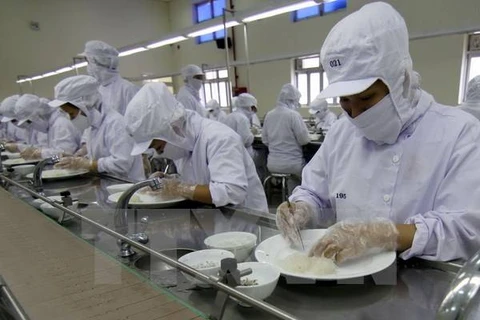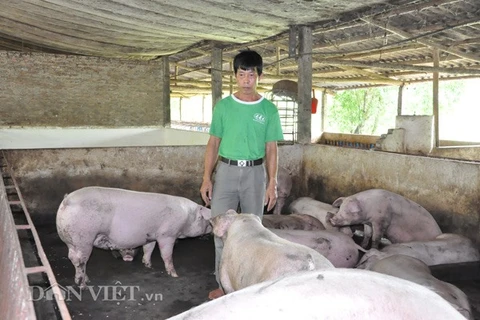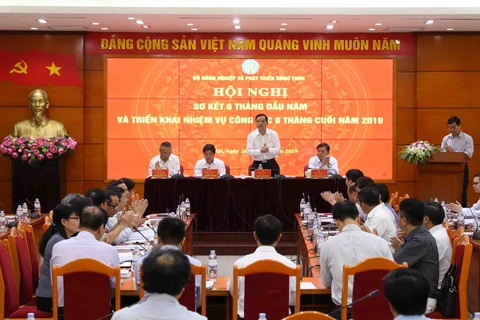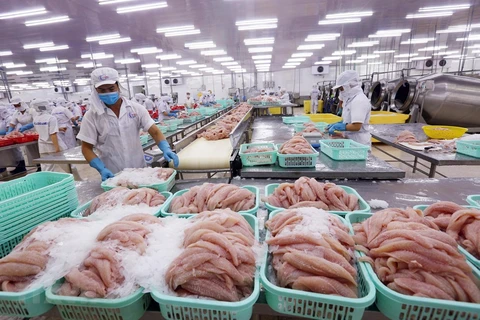Hanoi (VNA) – Policies on planning, science-technology, finance, commerce and training human resources, have contributed to turning the country’s livestock industry into a strong commodity production sector, heard a conference in Hanoi on December 25.
Hosted by the Ministry of Agriculture and Rural Development, the event aims to review the 10-year implementation of the National Strategy on Livestock Development from 2008-2018, and discuss orientations for the sector in 2020-2030.
According to Nguyen Xuan Duong, Acting General Director of the MARD’s Husbandry Department, almost all the development orientations and major objectives of the Strategy have been carried out in accordance with requirements, helping the industry basically meet the demand of domestic consumption, and export targets.
In the period, the meat output increased by 1.5 times, reaching 5.4 million tonnes from 3.6 million tonnes in 2008. Meanwhile, the production of egg, fresh milk and industrial animal feed grew by 2.3 times, 3.6 times and 2.4 times, respectively.
Many new industries have been formed, becoming the foundation for developing the husbandry sector, including the processing of animal feed and milk.
Notably, relevant connection chains between enterprises and farmers, and livestock cooperatives have been established in localities.
Participants to the event also pointed out shortcomings and difficulties facing the sector, saying that disease control and technological application in breeding remains limited.
The prolonged epidemic in many localities has sent food prices soar, they said.
It is necessary to devise effective measures to cope with diseases, and promote deep processing in order to create breakthroughs for the industry in the time to come, said Nguyen Thanh Son, Chairman of the Vietnam Poultry Association.
Vietnam’s livestock industry is targeting a yearly average growth of between 4-5 percent in the 2020-2025 period, and between 3-4 percent in 2026-2030./.
VNA
























